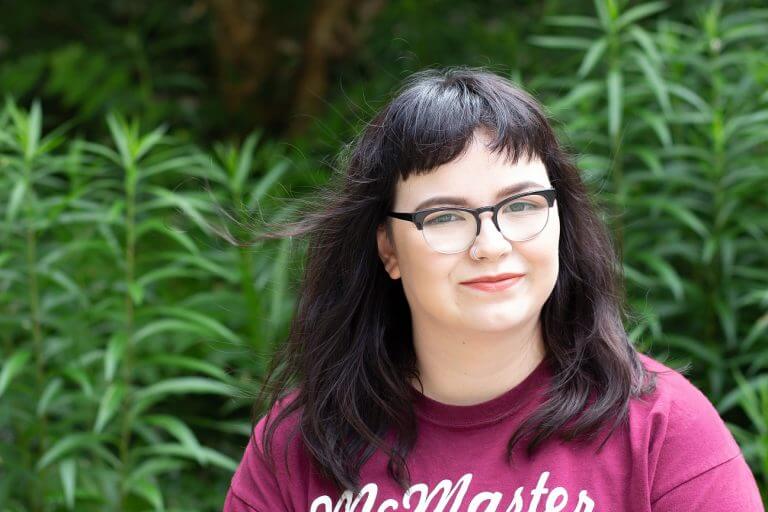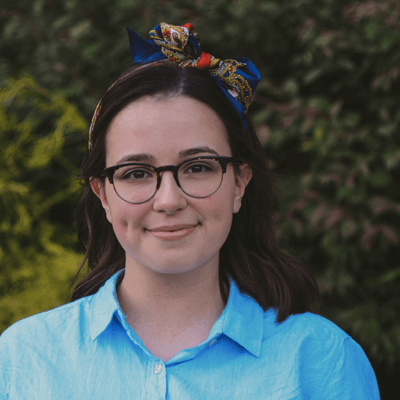By: Tory Dockree, Tabatha May, and Emily Meilleur-Rivers
In university, you will almost certainly have some difficult days but we hope that this doesn’t discourage you. There might be days where you miss deadlines, don’t get enough sleep, or feel as though you have an infinite amount of work to complete.
In the spirit of working through hard days, we wanted to share some of our experiences bouncing back when times were tough. We hope that by learning these stories, you will have a better sense of how you’ll able to work through challenges when they arise.
Tory
My first year of university featured many things that I found intimidating; however, there was something particularly nerve-wracking about labs. I had never been in these types of situations before and I certainly felt like my minimal high school experience playing with Bunsen burners wouldn’t cut it in a university chem lab. Therefore, when I went into my first lab, all that I was hoping was that my hands wouldn’t shake as I tried to navigate using a pipette for the first time. It felt like a very high stress environment because I only had three hours to conduct each experiment and I felt like a timer was consistently ticking in my head. However, this fear and nervousness soon went away as I realized that everyone standing around me was just as confused as I was, and that the point of my TA was to help me work through all of these hurdles. I can’t say that my first lab was a roaring success, or that there weren’t many bumps along the way, but what I can say is that my comfort level in labs has certainly risen and that I can now do a whole lot more than simply light a Bunsen burner.
University labs aren’t always easy, and there will be bumps along the way. These are not situations where you will have tons of time to make up for errors or repeat things; they are meant to be used to develop practical skills efficiently. However, they’re also not worth a lot in the grand scheme of things. Each lab, while seeming like a large hurdle, is in fact a small portion of the overall course, so you should take the space that you need to make mistakes and show yourself some compassion when errors happen—because they will. It is also important to keep in mind that this is your first year; you are just getting used to what it means to be in a lab and it will take time to become comfortable in these environments. So don’t beat yourself up if things don’t immediately go your way—you will have at least four years to get your bearings in these spaces.
Tabatha
Going into first year, I felt like a really strong writer. Writing was something I was pretty passionate about and I was honestly used to getting As on my papers with pretty minimal effort. While I understood that my grades in university might drop, I remember feeling good about my first essay. The guidelines were simple: explain the meaning of the passage in your own words, and explain why the ideas in the passage are important to the broader argument of the philosopher. We would be graded on our ability to meet these expectations as well as on our style (one mark lost for every grammar mistake), all within three pages.
“This will be no problem,” I thought, but I was wrong. To my shock and dismay, I did not ace this essay. At first, I was frustrated; I remember thinking that my TA’s grading was unfair. I answered the questions, I followed what I thought was a usual essay format, and I illustrated a thorough understanding of the philosophy. My mother, who has worked in academia for most of my life, luckily set me straight. She told me the following:
- You should have your papers reviewed by someone else. It can be hard to find the flaws in your own work. (The Writing Centre and your TAs are great resources for this).
- You need to use these experiences to learn and get better or you’re never going to grow as a writer.
- Don’t get upset with your TA—listen to what she has to say.
While I was probably still bummed about my grade after talking to my mom, this conversation gave me the confidence to speak to my TA. My TA told me a few really important things. I didn’t integrate quotes properly, I used the semicolon incorrectly, and I didn’t elaborate or expand upon my ideas enough. She helped me understand the flaws in my paper in such a way that I didn’t feel so bad anymore—instead, I felt inspired to do better.
Basically, here’s what I hope you get out of this story. If you’re not meeting your expectations it’s okay to be upset about it, but don’t let that stop you from seeking guidance. All failures are also opportunities for growth. Writing this blog, I looked back at that paper and laughed. So when you find yourself upset about a grade, remember that one day you’ll probably do the same. Failures happen and all that matters is how you bounce back. You’ve got this.
Emily
Since I just graduated, I am already spending a ton of time reflecting back on my undergrad and where I’m going from here. Before I transferred to Mac in my second year for financial reasons, I was at uOttawa. After missing some icebreaker events early on, I started to feel like everyone in my program was closer with each other than I was. I can’t fault them, though; it was just that they realized sooner than I did that the only way to end up with friends is to talk to people and not just wait for them to talk to you.
As second semester rolled around, I made more of an effort to ask people on my residence floor to grab dinner a few nights a week. I’m so glad I did, because this led to the large group of close friends I have maintained even since leaving uOttawa. When I came to McMaster, I was worried about being in this situation all over again. Thankfully, I soon recalled that reaching out to people in lecture (as well as talking to professors and joining clubs) can make all the difference.
I feel so lucky that I felt welcomed to Mac even as a second year, and I’m confident you will too—you just have to be willing to say hello to some new folks! I wish I could go back and tell my first-year self to make small talk sooner. Especially in first-year, it is the willingness to put yourself out there and make a bit of small talk that leads to familiarity, friendship, and community that you never expected.
About Tory, Tabatha and Emily

Tory
I’m going into my third year of Arts & Science with a combination in Philosophy.

Tabatha
I’m going into my fourth year of Social Psychology with a minor in Sociology.

Emily
I just finished my undergrad in English and Cultural Studies with a Minor in Women’s Studies. In September, I am sticking around at Mac to start my Master’s in Cultural Studies and Critical Theory.